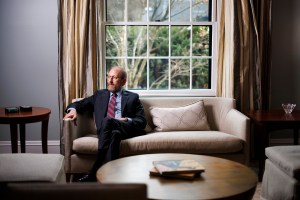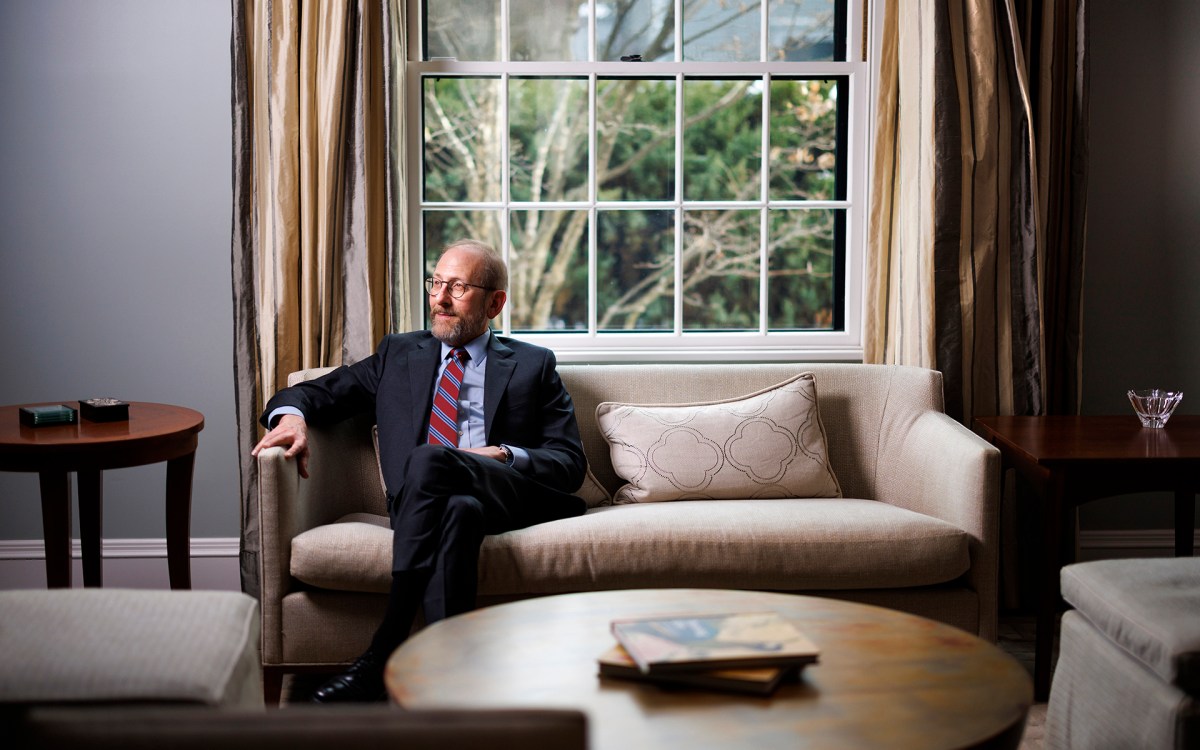
Students pass through Harvard Yard near Sever Hall.
Stephanie Mitchell/Harvard Staff Photographer
The Pulse Survey on Inclusion and Belonging, launching Tuesday will provide a snapshot of feelings of inclusion and belonging among members of the Harvard community.
The survey “is an important tool for assessing our ongoing efforts to build a culture of inclusion across the University that empowers individuals to realize their academic and professional goals,” President Alan Garber wrote in a message to the Harvard community. “Responses to the Pulse survey will inform recommendations and shape future initiatives related to inclusion and belonging, helping to ensure that our work in this important area is guided by the personal experiences and insights of members of our community.”
The survey should take a few minutes for participants to complete and is open to all members of the more than 50,000 people at the University, including all faculty, staff, academic personnel, postdocs, and students. The effort, which is led by the Office for Equity, Diversity, Inclusion, and Belonging, stems from the Presidential Task Force on Inclusion and Belonging’s report in 2018.
Designed to be held every few years, the Pulse survey enables the University to track the community’s climate of belonging over time. The survey was piloted in 2019, and the 2024 survey will provide important benchmark data for the tracking of progress in future Pulse surveys.
“Everyone in the University community is invited and encouraged to participate in the survey, which will help us find signals of how important fostering a community of belonging is for the University,” said Sherri Charleston, chief diversity and inclusion officer. “Using the survey responses from all participants, we can make specific, data-informed decisions to improve the culture of belonging at Harvard moving forward.”
For example, data from the 2019 survey was instrumental in sharpening the University’s focus on building community to promote a sense of belonging, according to Charleston.
A core set of questions from the 2019 survey are also included in this year’s survey, a strategy that allows researchers to look at trends over time and identify which efforts have been most successful and what areas may need more attention.
“If you care about improving, then you care about measurements over time,” said Andrew Ho, the Charles William Eliot Professor of Education, faculty adviser for the Pulse survey, and a former member of the Presidential Task Force on Inclusion and Belonging. “This isn’t a flash in the pan. It’s a sustained commitment across the University and over time, from President Faust through President Bacow, President Gay, and now President Garber. And it’s across all communities within Harvard.”
The survey is administered by the Office of Institutional Research & Analytics (OIRA) with guidance from Ho. According to Drew Allen, associate provost of OIRA, the Pulse survey uses the same kind of software that academic researchers at Harvard often use to study very sensitive topics. All responses will be confidential.
“We have a data-management protocol in place that ensures the confidentiality of all responses,” says Allen. “Only the members of our research team who are directly involved in administering the survey will have access to the raw data that are collected.”
According to Allen and Ho, reported results will not be able to be linked to an identifiable participant or to any small group due to sociodemographic information or office location. The de-identified data will be analyzed by OIRA and will be publicly shared in late spring of 2025, giving everyone in the Harvard community the opportunity to see the results.
“There’s a commitment to transparent reporting, so University leadership and all of us at Harvard will be able to see and use the results to improve belonging,” said Ho.




